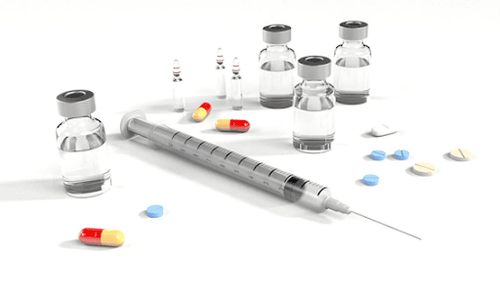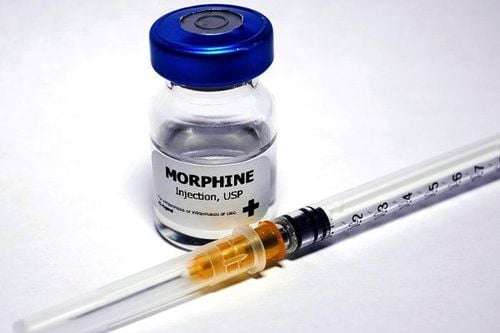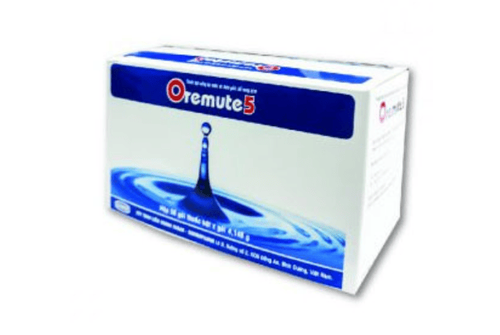This is an automatically translated article.
When a person is undergoing cancer treatment, they may experience diarrhea for a number of different reasons. Usually, it's a side effect of treatments, such as chemotherapy or radiation. At this time, the condition of diarrhea is when passing loose, watery stools and more than one bowel movement per day than usual, it is necessary to report to the doctor for timely control.1. Diarrhea during cancer treatment
By definition, diarrhea is the passage of loose or watery stools several times a day, with or without abdominal discomfort. This condition can occur when water in the intestinal lumen is not absorbed back into the body for a number of reasons.
In people undergoing cancer treatment, there are many possible causes and treatments for diarrhea, some related to cancer and some overlapping with other health problems. Accordingly, common causes of diarrhea in these patients may include chemotherapy, targeted therapy or immunotherapy, abdominal radiation therapy, and certain medications. Sometimes, there are several types and locations of tumors that can cause diarrhea on their own.
On the other hand, diarrhea can also be caused by foods the patient consumes but cannot tolerate, such as foods high in sugar, spicy, fatty or fried with a lot of fat. Other problems that can cause diarrhea are infections, surgery, or taking concentrated liquid supplements with high concentrations of vitamins, minerals, sugars, and electrolytes.
In cancer-related diarrhea in particular, depending on the type of treatment given, diarrhea can begin to appear within hours, days, or weeks of chemotherapy, targeted therapy or immunotherapy. Even radiation therapy can cause diarrhea after a certain period of time. Also, if the diarrhea is related to cancer treatment, it may persist for weeks or months after the treatments have ended.
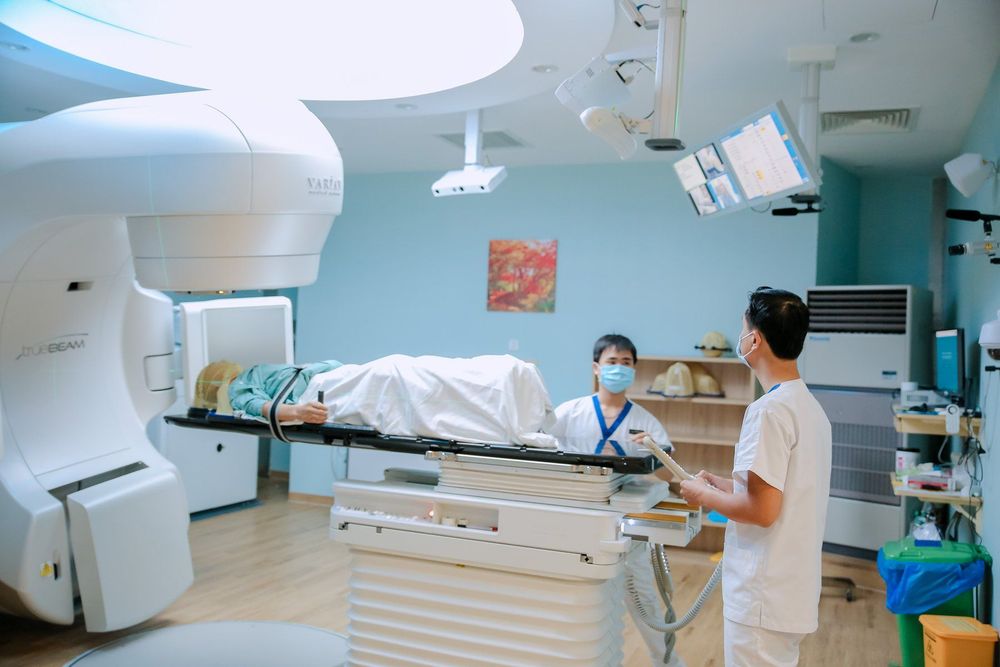
Xạ trị có thể gây ra một số vấn đề về đường tiêu hóa như tiêu chảy
For cancer surgery in the stomach or intestinal tract, some patients may experience diarrhea in the immediate postoperative period. This may be because the length of the digestive system has been cut, shortening the distance to absorb substances and water in the food fluid. In addition, surgery also causes sensitivity to sweet or high-carbohydrate foods, foods with a lot of gas, and carbonated beverages.
Finally, a weakened immune system caused by cancer treatment can also put a person at a higher risk of infection and possibly diarrhea.
Regardless of the cause of the diarrhea, for someone undergoing cancer treatment, untreated or poorly controlled diarrhea can lead to dehydration and malnutrition. Patients are more rapidly exhausted than the average person, increasing morbidity and mortality rates.
2. Diarrhea and chemotherapy
Chemotherapy itself, in addition to its role in curing cancer, brings a lot of unwanted side effects. Because each person's body is different, the manifestation of bad reactions after chemotherapy to treat cancer is also different, it can be severe, mild or fortunately no symptoms at all.
As for the effect on the intestinal tract, chemotherapy can damage the cells lining the lining of the intestines. As a result, diarrhea with persistent watery or loose stools can occur. Therefore, patients should notify their doctor if they have had diarrhea lasting more than 24 hours, if they have loose stools more than 6 times per day for a period of 48 hours, and/or if they have abdominal pain and cramps associated with them. diarrhea. It is important for the sick person to quickly learn how to replace the water and nutrients lost due to diarrhea. At the same time, your doctor will also need to prescribe medication to control adverse symptoms. If symptoms persist, the person may need intravenous fluids. Taking any over-the-counter medicine for diarrhea without telling your doctor while on chemotherapy is absolutely something to avoid.
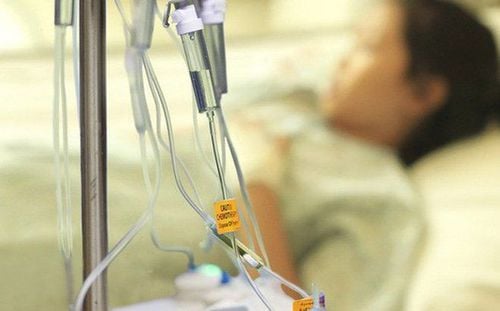
Hóa trị có tác dụng chữa bệnh nhưng có thể gây ra tác dụng phụ
3. Diarrhea and radiation therapy
Diarrhea itself is also a symptom associated with cancer, which can be seen in patients with carcinoid tumors, gastrointestinal tumors, and hormone-producing tumors. At the same time, if the patient is receiving high-dose radiation therapy and/or the patient is receiving radiation therapy to the abdomen and pelvis, there is an increased risk of diarrhea than patients undergoing cancer treatment at other sites.
Indeed, chemotherapy-induced diarrhea was found to be the most frequent side effect of radiation to the abdomen and pelvis. The mechanism is that radiation therapy to the abdomen and pelvis can damage the lining of the rectum, causing inflammation and swelling. This condition, also known as acute radiation enterocolitis, can be seen in up to 70% of patients with a range of symptoms ranging from mild to severe, including watery, watery diarrhea to mucus or bloody diarrhea. blood in bowel movements.
On the other hand, diarrhea can also be a late-onset side effect, manifesting as chronic enteritis, which can occur months or years after treatment, depending on radiation dose and other factors. patient's location
4. What to do when having diarrhea when chemotherapy - radiation treatment for cancer?
Chemotherapy and radiation therapy to the abdomen are among the reasons why people undergoing cancer treatment may experience diarrhea, defined as two or more loose stools a day. As with any side effect of cancer treatment, you should contact your doctor if the condition tends to be severe and difficult to control.
However, there are many things you can do yourself to help control diarrhea better:

Bác sĩ sẽ có những lời khuyên cho người bệnh khi bị tiêu chảy khi hóa - xạ trị chữa ung thư
4.1 Change of daily diet:
Many foods can be good for the body without the risk of causing diarrhea, so here are some suggestions for making healthy choices:
Choose protein-rich foods such as well-cooked eggs, lean meats, fish, poultry, peanut butter or legumes instead of fried or fatty foods like hot dogs, bacon, chicken balls, fried seafood or pizza. Choose skim or low-fat milk, yogurt or cheese, and use lactose-free dairy products if you're lactose intolerant instead of regular whole milk or cheese. Choose cooked vegetables such as carrots, green beans or mushrooms over raw ones, especially those with thick skins, seeds or tough fibers like broccoli. Choose fresh fruit without the skin or canned fruit like apples instead of dried fruit. Choose desserts that are low in fat and lactose, such as ice cream or crackers instead of high-fat ice cream or any sweets, gum, or mints that contain sorbitol, mannitol, or xylitol .
4.2 Consume enough water:
Drinking plenty of water is important to do if you have diarrhea.
To avoid dehydration, try a variety of beverages to increase tolerance. It is best to use drinks that provide extra electrolytes — salts of the body, to help keep the concentration of the environment in the body in balance for the cells to function properly.

Uống nước nhiều sẽ giúp cải thiện tình trạng tiêu chảy
4.3 Use of anti-diarrheal drugs:
You should consult your doctor about choosing the best medicine for yourself when you have diarrhea. The most recommended over-the-counter medication for diarrhea is loperamide (Imodium and others). If another type is needed, ask your doctor if it is appropriate.
Because diarrhea is one of the different side effects in each person. Depending on the condition, your doctor may need to prescribe stronger drugs such as diphenoxylate and atropine. However, like all drugs, these can interact with medications that may be used to treat cancer, such as opiate-based pain relievers. Accordingly, the professional opinion of the doctor is extremely important.
In a nutshell, diarrhea during chemotherapy or radiation therapy can be severe or prolonged, preventing the body from absorbing enough water and nutrients. This makes cancer patients dehydrated and more malnourished. Therefore, in parallel with cancer treatment methods, the management of side effects also needs attention, helping to improve the effectiveness of treatment.
Early cancer screening is considered a perfect measure in the timely detection and treatment of all types of cancer. Vinmec International General Hospital currently has a high-tech cancer screening and examination package, including genetic testing, imaging, and biomarkers for early tumor detection.
Only one gene test can assess the risk of 16 common cancers in both men and women (lung cancer, colorectal cancer, breast cancer, pancreatic cancer, neck cancer) uterus, stomach cancer, prostate cancer,....)
Vinmec International General Hospital is one of the hospitals that not only ensures professional quality with a team of leading medical doctors, system of modern equipment and technology, but also outstanding with comprehensive and professional medical examination, consultation and treatment services; civilized, polite, safe and sterile medical examination and treatment space.
Please dial HOTLINE for more information or register for an appointment HERE. Download MyVinmec app to make appointments faster and to manage your bookings easily.






